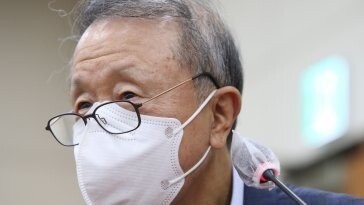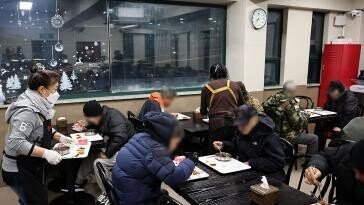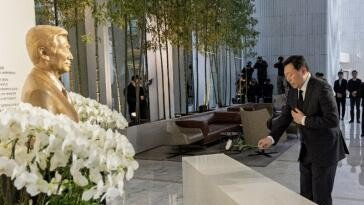Foreign Correspondents’ View
“G20 again? Everybody is talking nothing but the G20!” said Mark McDonald, Seoul correspondent for “The New York Times.” “It seems that the whole of Korea is centering around the G20.”“It’s quite surprising to see almost every TV commercial mention something about the G20,” added another reporter, Sebastien Falletti of “Le Figaro.”
Seoul-based foreign correspondents have local insight that the 1,700 reporters visiting Korea for the brief summit lack, and all remarked upon the national passion and keen interest that mark South Korea’s preparations for the event, which is being treated here like the Olympic Games and the World Cup.
“The Chinese government and its people regard this summit highly,” said CCTV’s Lu Xinghai. “I expect the exchange rate dispute to be discussed heatedly.”
But the correspondents pointed out that the nation may be harboring excessive expectations. “South Korea is more than qualified to host the G20,” said Hakoda Tetsuya of the “Asahi Shimbun.” “But it seems a little awkward to see it so worked up, as if it got some undeserved good fortune.”
“Financial Times” correspondent Christian Oliver echoed Hakoda’s remarks. “Many people in the U.K. didn’t even know there was a G20 summit in London,” Oliver noted. “The atmosphere here is totally different since the South Korean government is trying to use this meeting as a legacy to prop up its national brand image.”
Indeed, North Korea - a rogue state with nuclear weapons, a gruesome human rights record and a leader who is almost a cartoon caricature villain - is one of the hottest stories on earth. With access to the reclusive “Kimdom” limited, Seoul, home to a large community of defectors and North Korea experts, is the best place to cover it from.
“An editor once said to me that North Korea is ‘the last big news story on earth,’” said Andrew Salmon of “Forbes” and “The Times.” “North Korea is one of the key reasons foreign journalists are stationed in Seoul.”
Like his colleagues, Salmon has been kept busy covering the March sinking of the South Korean naval vessel Cheonan and Pyongyang’s recent third-generation power succession.
Still, the correspondents added that events are slowly convincing editors to take more interest in matters south of the 38th parallel. They cited the ever-increasing global reach of Korean multinationals, technologies and pop culture - film,television dramas, computer games and music.
McDonald first visited South Korea to cover the 1988 Seoul Olympics. After 22 years, he is back as a correspondent. “I’m amazed and happy to see how much it has changed,” McDonald said.
By Lee Jung-eun
lightee@donga.com
-
- ???
- 0?
-
- ???
- 0?
-
- ???
- 0?



?? 0